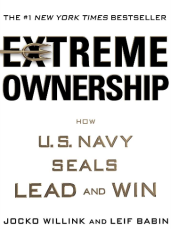Being an advisor and out of line management has it perks but also it’s fair share of drawbacks. Likely you would have suffered a large share of providing advice to someone in line management and them choosing to go in another direction.
Depending on YOUR outlook (not their’s, this is key) this is normally followed by a few choice swear words, maybe an implied or veiled future ‘I told you so’ threat and a fair bit of sulking. If this isn’t you, kudos, but I would hazard a guess that early on in your career there was likely a fair bit of it 😉
So how best to deal with your advice being heard but not acted upon in its entirety? It’s all about you.. not them!
This might be hard to hear for some but if someone doesn’t act upon your advice, it likely wasn’t the actual content of the advice (sometimes it is, but I choose to believe you are someone who is thoughtful and carefully considered the majority of the by-products of the advice you are giving) or other person receiving it, chances are the messenger and delivery was the weak link. That’s you by the way. I think this bears repeating:
It’s all about them, yet only you can control yourself and alternate approaches to your current objective. If they don’t accept your advice and act upon it, it is incumbent upon you to deliver the message in a more relatable and actionable manner. Likely, there wasn’t a meeting of the minds and both yours and their perspectives in their entirety haven’t been shared and discussed, leaving both parties appreciative of the other’s viewpoint with adequate weighting.
Most often I hear, “They won’t change their work method, yet I told them it was non-compliant.” This is normally followed by a reflective discussion on their role as a coach and partner vs auditor. If you can’t partner with individuals to get a better outcome, what are you in the role for?
The level of ownership you take for the above is one of the best indicators I use to gauge if someone is a high performer. It indicates that you are self-aware and on a development pathway, iterating your own knowledge and behaviour as you gain more experience in the field of Safety. It indicates a growth mindset, towards both yourself and the individuals you are advising, sometimes you need to bring people along for the ride.
A great question I ask candidates is “What did you do when your advice was ignored and then the event which you advised about came to fruition?” The first two seconds and expressions are crucial if there is a smirk or discussion about how inferior the person was who didn’t take the advice was, it’s going to be a major factor in my decision to hire. It’s one of the biggest opportunities you have as a Safety coach or partner to accept that individuals are free to make their own mind up, you can’t control people and accept that sometimes we all achieve less than acceptable outcomes.
Furthermore it is the keystone of which many of my toughest relationships to build have been built upon, personally acknowledging that people are human and assisting when the chips are down, without judgement. If you run people’s noses in it, good luck having a constructive working relationship with someone. By the way, the above is true the other way around with me as the one who listened but didn’t act. It’s always better to lead with the chin and accept the onus of accountability and commit to improving in the next cycle.

If you want to extend the concept of Extreme Ownership I’d recommend reading Jocko Willink and Leif Babin book ‘Extreme Ownership – How the US Navy Seal teams lead & win‘. Jocko also has a podcast here. I’d encourage you to read this if you’re keen on leveraging your performance, actions and building a culture of high performance in the team you are in or lead. It is also where I came across a number of analogies and statements which are concise, to the point and highly relatable, just like the term Extreme ownership which they coined.
By the way, it doesn’t get easier the higher you are in an organisation. You might find that you have more relative or inferred power lower in the hierarchy, however, at a peer and higher level you are still attempting to create understanding and rapport with senior line management who have the delicate balance of attempting to be inclusive of all perspectives to maximise positive by-products, not just safe outcomes, just like supervisors, yet at scale!
For another article on how to improve your mindset around building shared perspective see this past post here